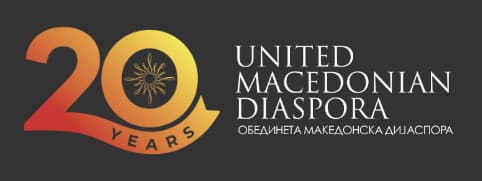By Aleksandar Popovski, UMD Member, Florida
Those that are calling for a boycott of the census are doing so because they think that the census is forged. They are right, because at this moment, boycott is the only proven forgery.
What is a forgery?
- Alteration, deletion, or addition of data. A forgery is an activity through which a false representation of the census results is accomplished. For example, if you registered yourself as a Macedonian but someone changed that to say Roma. Or if there were 1 million census forms from Macedonians but the census bureau deleted 100,000 and only showed 900,000. Or vice versa: there were 100,000 forms from Roma people, but the census bureau falsely added 100,000 so the total number became 200,000. Or lastly, if there were 1 million forms from Macedonians but 200,000 were invalidated for dubious reasons and only 800,000 were counted.
This type of manipulation can only be claimed at the end of the census, after the final results are tallied, analyzed, and published. If there are any objections towards the validity of the results, an investigation takes place to determine if there was any malfeasance. To say that a forgery took place requires solid evidence and a successful legal challenge.
At the moment, the census is not over, there are no results, and there is no evidence. To say now that the census is forged is either nonsense or a conscious effort to deceive people for personal gain.
- Not registering in the census. Boycotting the census can also be considered a forgery because it paints a false picture of reality. For instance, if the true number of Macedonians is 1.3 million but the census bureau only registers 1.2 million (because they are unable to inscribe 100,000 due to boycott), this creates an incorrect account of the population. In essence, the allegation that the census is forged is true, because those that boycott the census are deliberately causing an incorrect result.
- Predetermined outcome. If the outcome of the census is predetermined, the census forms will not be counted at all, or the numbers will be tweaked as needed. For example, the true census showed that Albanians are 22% of the population but the census bureau announced that they are 27% because this was agreed upon. The 27% in this case is a made-up number and is not supported by facts.
This can happen of course, but it is too early to tell if it will happen. A forgery can be announced only if there is a deed done and not before that. This is analogous to the concept of presumption of innocence. An accused person is deemed innocent until his guilt is proven in a court of law and a judgement is proclaimed affirming the guilt and the appropriate punishment.
What is not a forgery?
- Political agreement. The census is taking place now as a result of a coalition deal between the ruling parties, entered upon at the urging of the Albanian partners. The Albanians assume that Macedonians will not register in a sufficient number so that in the final results, the Albanians will increase their percentage share. This by itself is not a forgery, but just an agreement and an assumption. What if the results of the census do not support the assumption and they show a greater number of Macedonians? In this case, the agreement is fulfilled but the results are not expected.
- An increased percentage of minorities. The census report should present the results as they are. If more Albanians registered than before (25.17% per the 2002 census), then there are more Albanians. This is the beauty and the ugliness of numbers. They tell the truth whether we like it or not. If not enough Macedonians register in the census, what can the outcome be other than an increased percentage of minorities?
The sad reality is that if Macedonians boycott the census in significant numbers, there will be no need for manipulation. In fact, if the real data show the number of Macedonians as drastically lower, we better pray that there was some political agreement for tweaking the count. Otherwise, Macedonians are on the path of becoming a minority in their own country.
Any opinions or views expressed in articles or other pieces appearing in UMD Voice are those of the author alone and are not necessarily those of the United Macedonian Diaspora and its young leaders’ program Generation M; the appearance of any such opinions or views in UMD Voice is not and should not be considered to be an endorsement by or approval of the same by UMD and Generation M.




